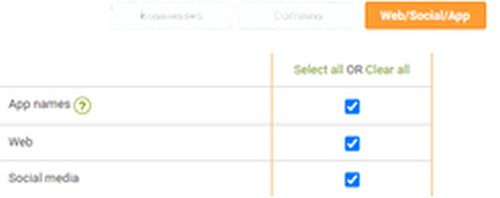As vital as it is to search trademark registries for potentially conflicting trademark registrations, searching for unregistered rights can be equally important. Leslie Meritt explains the importance of including common law trademark rights in your search strategy and how to access the databases directly from Questel's clearance platforms, Markify Comprehensive Search and Markify ProSearch".
Common law trademark rights arise from the use of an unregistered trademark, meaning that they do not require registration at the patent and trademark office. While common law trademark rights remain active as long as the unregistered mark is in use, they are limited to and enforceable only in the geographic area in which the trademark is used.
- Registered trademarks may be identified by this symbol: ®
- Unregistered trademarks protected by common law may be identified by this symbol: "
Why Search for Common Law Trademark Rights
A handful of countries currently recognize common law trademark rights: The United States, Canada, the United Kingdom, Australia, New Zealand, and several other former British colonies. In these jurisdictions, it is highly advisable—if not mandatory—to conduct a common law search prior to filing a trademark.
In countries that donot recognize common law trademark rights, it is still wise to conduct a search covering unregistered trademarks because those that have acquired a certain level of fame or recognition could still pose a risk. For example, they may be protected under other laws related to unfair competition or passing off.
In countries with common law trademark rights, for example, the United States, a trademark owner may enforce their exclusive right to use a mark in business operations even without it being federally registered. To pursue a lawsuit, that owner must prove priority of use, showing that they were the first to use the mark in a specific geographic area 1. It's important to be cautious, therefore, because if you do not perform a careful search, your registered trademark could infringe on an unregistered trademark in use!
How to Search for Common Law Trademark Rights
Naturally, when you are looking to register a new US trademark, you will want to search the US Patent and Trademark Office (USPTO) database to rule out any currently registered trademarks that may be considered 'confusingly similar' to your own. But, what about the common law trademark rights currently in use in your area? If you are performing a search, it is important to extend that search to also include unregistered common law trademark rights.
- Registering a trademark at the USPTO without performing a common law search can cost you time and money. A local business may have been using your clever name/logo for years under common law and they would have the right to sue you for infringement.
- A thorough trademark search report which covers both registered trademarks and common law sources (including app/web/social media, business, and domain names) serves as valuable evidence if you are ever sued for infringement.
Unfortunately, the USPTO's searchable database is limited to federal trademark applications and registrations. The same applies to US state databases, which are limited to only state registered trademarks.
In other words, there is no central database of common law trademark rights. The sources of this data are not always obvious, and can be spread out all over the web, including apps and social media sites. As a result, common law searching can be challenging and time consuming.
How Questel Simplifies Searching for Common Law Trademark Rights
Questel's trademark clearance & watch platform has offered app, web, and social media search for quite some time as part of our Markify Comprehensive Search capabilities. Now, we offer that same functionality in our knock-out subscription search solution, Markify ProSearch" at no additional cost! This means unlimited knock-out searches now include the following common law sources:
Under the App/Web/Social media tab, you can find three sources:

App names cover applications in the Google Play and (Apple) App Store that are using your searched name:

Web search is an automated search with known biases, such as region and personal search history, eliminated.
The search includes a maximum of 50 results, and the orange links will take you directly to the original source:

Social media search detects the use of a name in the world's largest social networks: Facebook/Meta, LinkedIn, Twitter/X, Instagram, YouTube, and Pinterest.
The top 20 results from each social network are covered. The links to the original sources are also included:

In the common law module, you can also select databases covering business names and domain names:

Business name search produces highly similar company name records (including the searched term).
Among the details, you can see the registered name and trade name, address, annual sales, primary activity, status, number of employees, and serial number:

Domain name search provides identical results for all types of top-level domains (TLDs), and similar results for generic (gTLDs), country-code (ccTLDs), and new (nTLDs) domains (browse the complete list of available sources).
You can click on the name in orange to open the website and explore its content. WHOIS information is also available directly in the report:

Footnote
1. Questel does not provide any legal services. Legal services are provided by independent IP attorneys on the basis of a separate engagement agreement between you and, if you wish, a partner IP attorney firm.
The content of this article is intended to provide a general guide to the subject matter. Specialist advice should be sought about your specific circumstances.

